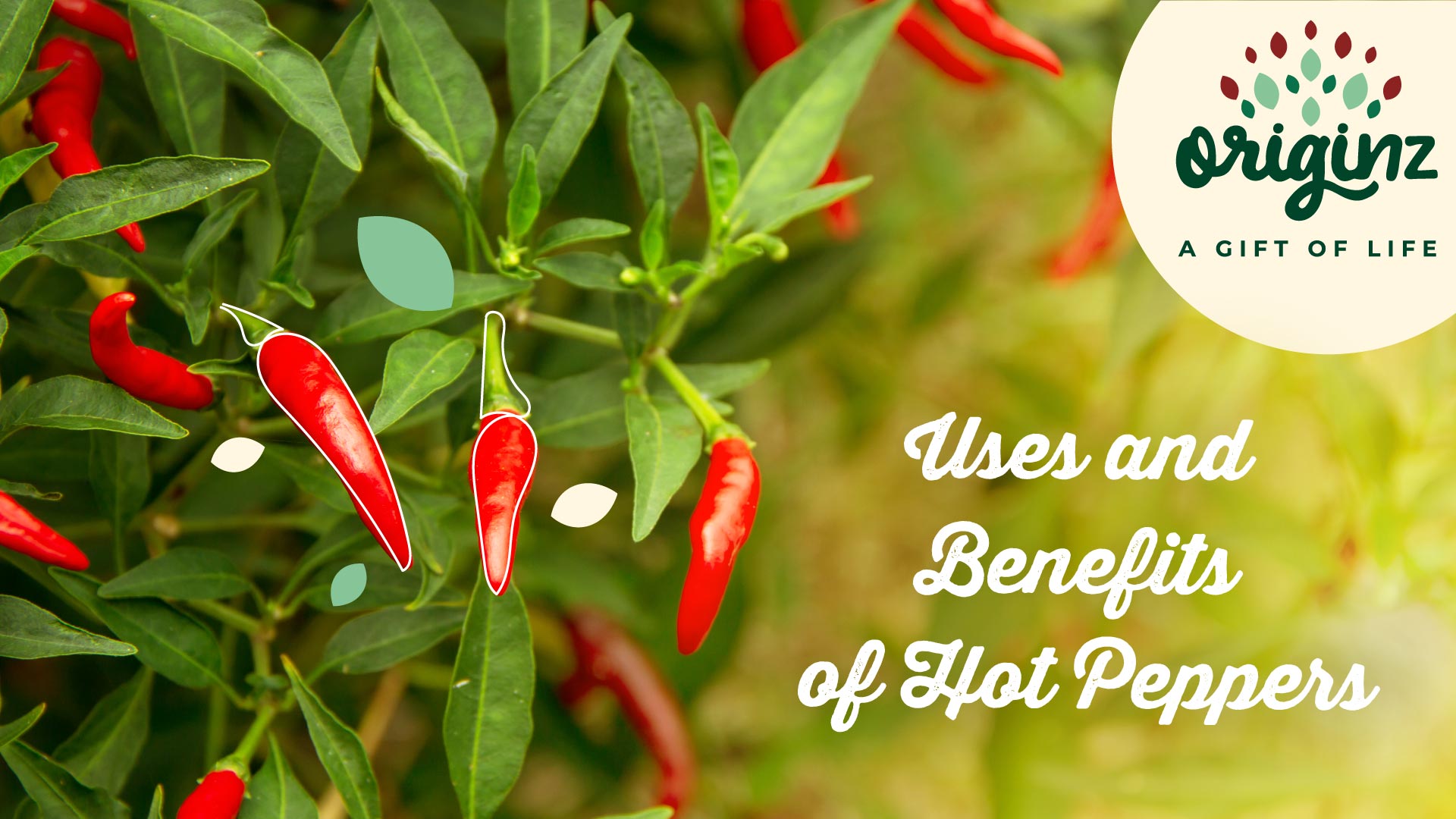
Uses and Benefits of Hot Peppers
Hot peppers, also known as chilli peppers, are a staple in many cuisines around the world. They add a spicy kick to dishes, but their use goes beyond just adding flavour. Hot peppers have a variety of uses and benefits, from culinary to medicinal, and even as a natural pest deterrent. In this comprehensive guide, we will explore the many uses and benefits of hot peppers.
Culinary Uses of Hot Peppers
Hot peppers are a versatile ingredient in many delicious recipes. They can be used fresh, dried, powdered, or as a sauce. This has meant that many world cuisines have adopted hot peppers. In Mexican cuisine, for example, they are used in salsas, stews, and marinades, and in Indian cuisine, they are used in curries and chutneys. In Italian cuisine, hot peppers can be used to make pasta sauces such as the organic arrabbiata sauce from Originz. The heat of the pepper can be adjusted according to taste, making it a flexible ingredient for a variety of dishes. The intensity of flavour can also change depending on when you add the peppers to your food, and how you treat them: chillies lose their heat a little when exposed to temperatures of 400º Fahrenheit or above.
When using hot peppers in cooking, it's important to handle them carefully. If you're not a fan of the heat, then you should first remove the seeds and membranous insides of a pepper before cutting it up. The capsaicin in the peppers, which gives them their heat, can cause a burning sensation if it touches your skin or eyes, so it's recommended to wear gloves when handling hot peppers, especially when cutting or deseeding them.
You can still benefit from the nutrients in hot peppers by using them in smaller amounts or by using milder varieties. You can also try using hot pepper sauces or powders, which can be easier to control the heat level.
Another way to incorporate hot peppers into your diet is by drinking them. You can make a spicy, warming tea by steeping hot peppers in hot water, or you can add them to your smoothies for a bit of kick.
Health Benefits of Hot Peppers
Hot peppers are not just a flavourful ingredient, they also have a number of health benefits. They are rich in vitamins and minerals, including vitamin C, vitamin A, potassium, and magnesium. Vitamin C is a powerful antioxidant, which helps protect your body from cancer and other chronic illnesses by reducing oxidative stress on cells. Vitamin A, or beta-carotene, helps support your eye health and fights against vision loss in old age.
Chilli peppers also contain capsaicin, a compound that has been shown to have a number of health benefits. Capsaicin has been shown to help reduce pain and inflammation. It works, ironically, by blocking the transmission of pain signals to the brain. This is why capsaicin is often used in topical creams and patches to relieve pain. Studies have also shown that capsaicin can increase your metabolic rate, helping you burn more calories and potentially aiding in weight loss. The health benefits of hot pepper for your body and mind are waiting for you!
Other Uses of Hot Peppers
Beyond their culinary and health benefits, hot peppers have a number of other uses. One of the most common is as a natural pest deterrent. Capsaicin, the compound that gives hot peppers their heat, is an irritant to many animals and insects, making it an effective natural pesticide. If you're looking for an organic way to keep pesky insects off your home-grown plants, consider crushing a few chilli peppers and adding them to a spray bottle of water, then spraying your plants with it once a day.
FAQs
How spicy are red chilli peppers?
It very much depends on the type of chilli pepper you choose, and there are many types of hot chilli peppers. The heat of chillies is measured using the Scoville scale: a jalapeno pepper scores at around 2500 Scoville heat units, a bird's-eye chilli around 50,000, and a habanero around 100,000. The hottest pepper, the Carolina Reaper, scores a whopping two million!
How much chilli is safe to eat?
The amount of chilli that is safe depends on the person's individual spice tolerance – some people experience stomach cramps after eating too much chilli, or chillies which are too spicy. If you have concerns about your tolerance to chilli, consult a doctor or dietitian.
Can you grow chilli peppers at home?
Yes you can! A sunny windowsill is perfect for cultivating your own chilli peppers – simply add some chilli seeds to some soil and water a few times a day. Your chillies will feel that much better for having been made organically.
Hot peppers are a versatile and beneficial addition to any kitchen or garden. Their uses go beyond just adding heat to dishes, offering a range of health benefits and other uses. Whether you're a fan of their spicy kick or just interested in their health benefits, there's no denying the many uses and health benefits of hot peppers!
Further Read,
Latest Blogs

Maintaining Healthy Habits After Ramadan
Have Ramadan healthy meals after Ramadan and maintain healthy food habits and implement them in your daily lives. Read more about healthy food habits.

Authentic Middle Eastern Iftar Meals to Prepare This Ramadan
Prepare some authentic middle eastern iftar meals this Ramadan. Look for fresh Ramadan food ideas and make your day memorable with these dishes. Check them out.

Ramadan Dishes to Cure Fasting Fatigue
Don’t worry about fasting fatigue anymore as we have listed some best Ramadan dishes and easy iftar meals to support your fasting journey. Check them out.

Eid-al-Fitr Feast: Delicious Recipes to Celebrate the End of Ramadan
Celebrate the end of Ramadan with delicious recipes on the eve of Eid ul Fitr. Read more about the traditional Ramadan recipes and make them easily.